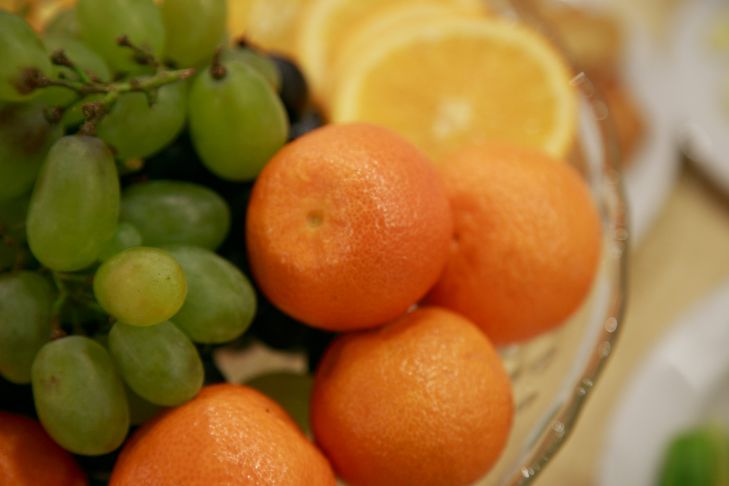What foods will be good for the body in January: what you need to eat
In January, many people face deterioration of health and appearance. And this is not only a consequence of New Year holidays and vacations, but also a banal lack of vitamins, minerals and other valuable elements. How to regain your vigor, fresh look and health?
Nutrition plays an important role in the process of recovery and strengthening of the body.
What foods should you add to your daily menu for January to look and feel good?
Naturally, the main ones will be fruits and vegetables. Even in January you can buy relatively inexpensive apples, pears, potatoes, carrots and other gifts of nature.
If you have been working in the kitchen all autumn, making jam from garden berries, canning tomatoes and cucumbers, drying mushrooms and preparing canned vegetable salads - now is the time to start taking out these preparations, canning and preserves and putting them on the table.
What foods can and should also be included in your diet if it's January outside? The first on the list is shallots.

It is valuable because it is stored for a long time, is rich in vitamin C and is an important and natural assistant in such matters as treating flu and colds. Shallots are suitable for sauces, casseroles, adding to soups and vegetable salads.
If you have turnip roots brought from the dacha or given as a gift by someone, then you can also eat them in January so that the body can cope with all the stress and be protected from diseases.
Turnips are superior to cabbage in terms of ascorbic acid content, and the presence of zinc, iron, and manganese in them helps to survive the winter lack of minerals. You can also make face masks from turnips to nourish the epidermis with useful substances.
If you really want cabbage and not turnips, then instead of the usual white cabbage, buy Brussels sprouts. They contain no less vitamin C than red currants or turnips, and can be eaten by both adults and children who have already switched to complementary feeding. It is useful to eat Brussels sprouts to improve resistance to respiratory diseases.
In winter, you want fatty dishes. Many people will agree with this. But it is not necessary to eat fried meat, soups with fatty broths and fast food: there will be no benefit to the body from this. What can replace them?
The answer is simple: buy a few avocados. Their pulp contains fats that will be beneficial. In addition, avocados and dishes with it help with severe stress, problems with digestion and falling asleep.
Of the relatively exotic fruits, pomegranates and kiwis are very good in January. If you can't find ripe pomegranates on the shelves, replace them with quality pomegranate juice.
What else can you feed your body to survive the cold and gloomy January? Of the protein products, it is best to eat rabbit meat at this time. It is suitable for those who actively train in the fresh air or in the gym, and for those who decided to lose the kilograms gained during the New Year holidays. Rabbit can be stewed, boiled, baked, and stewed vegetables are ideal as a side dish for rabbit meat.
And fish lovers can be advised to cook baked or boiled sea bass in January or make a delicious soup from this fish. Sea bass contains a lot of iodine and important fatty acids, so eating it will have a positive effect on the health of the whole body.
Previously we wrote about which eggs are healthier.
